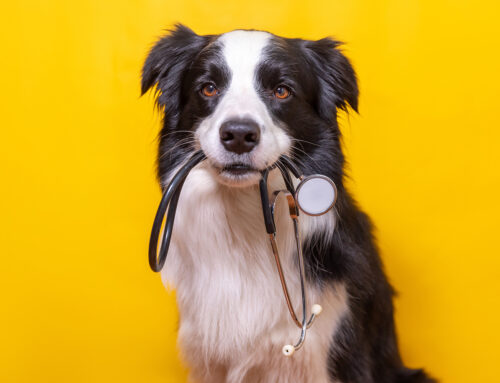Contagious Cough is a new name for the disease previously known as Kennel Cough. The old name suggested that it was only a problem for dogs in kennels. Unfortunately, as the disease is airborne and highly infectious, this is not the case. Any contact with other dogs can result in your dog becoming infected. Transmission of the disease is either by breathing in airborne particles, or when your dog encounters objects such as food bowls or beds that have been coughed on by infected dogs. Therefore, it is possible for a dog to pick it up in any area where other dogs are walked, as well as at shows, sporting events, training classes and day care.
Most service dogs are routinely vaccinated against Contagious Cough as they are often in contact with other dogs and the illness would affect their work. Licensed kennels, dog walkers and day care centres usually require a dog to have the vaccination before they can look after your dog. It will spread through a population of unvaccinated dogs very quickly and staff can carry the infective particles on clothes and shoes from one dog to another.
Most healthy dogs that develop Contagious Cough will have mild lethargy and an explosive honking cough which resolves in a few days to two weeks. They may have wet, runny eyes, sneeze and have a clear discharge from the nose. The cough can be alarming and distressing for both dog and owner, as it may result in your dog bringing up mucus or even vomiting. In young pups, elderly dogs or dogs with underlying conditions the mild respiratory infection can become more serious, with pneumonia or bronchitis developing. Rarely, a complicated infection is seen in a healthy dog.
There are multiple causes of Contagious Cough, at least 8 viral causes and 3 bacterial causes. The viral infections vary in severity and may cause damage to the airways and lungs that allows bacterial infection to invade and secondary infection to occur. Dogs affected in this way usually go off their food, develop a high temperature and appear uninterested in walks and attention. They may breathe quickly and cough frequently. The cough is usually worse when air temperature changes, for example going out into the cold garden, or it can be worse when eating and drinking.
If the cough becomes constant, that is another warning of a complicated infection. It is important that dogs affected in this way are seen by a vet; they may need anti-cough medication, anti-inflammatories and sometimes antibiotics. In rare severe cases, dogs may need hospitalisation for intensive treatment, such as intravenous fluids and antibiotics.
As the disease can cause severe infection in your dog and others, prevention is wise. The vaccine covers the most common causes of contagious cough: the bacteria Bordetella and canine parainfluenza virus. A vaccinated dog is less likely to develop a Contagious Cough infection and if he or she does get a respiratory infection, it is likely to be much less severe. The vaccine is unusual in that it is given up the nose or, more recently for some vaccines, in the mouth. In this way immunity is most effective where the infection first enters the body.
Some dogs do not like the idea of an intranasal vaccine and it may be worth practising holding their head so they are not alarmed when having the vaccine. Dogs who have a tendency to snap may be vaccinated more effectively if muzzled. Most Contagious Cough vaccines last 12 months and can be given with the annual booster. It is important that it is given 10-14 days before a dog goes into an environment like a kennels where there may be a high likelihood of coming across the disease. Most kennels have rules about how long before visiting your dog should receive the vaccine. This allows the dog to develop immunity. Rarely a dog may show mild symptoms of a cough 2-7 days after vaccination. Owners who have a challenged immune system need to be careful around this vaccine as it can cause mild disease in humans for people in this situation. Your vet can advise you if this applies to you or anyone in your family. Similarly, a dog that is unwell or on antibiotics should not be vaccinated.
Contagious Cough vaccine prevents a distressing, highly infectious disease. If your dog has contact with other dogs, it is wise to consider giving this vaccine alongside their annual booster.



